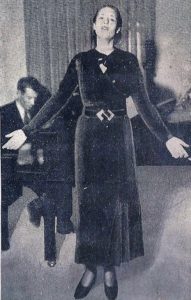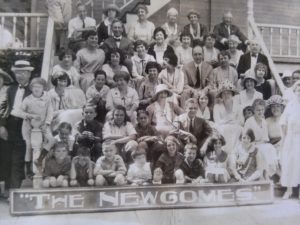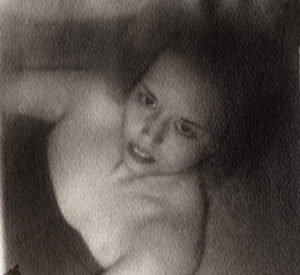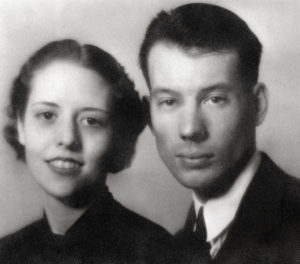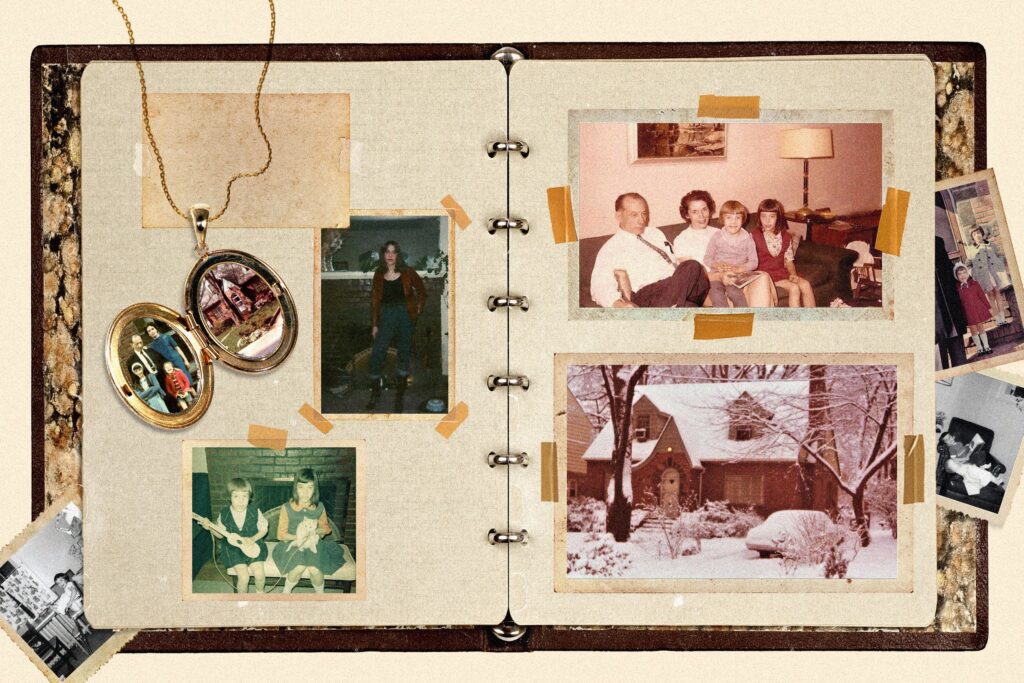
Exciting news! The Night Divers is a finalist for the Library of Virginia’s Literary Awards!
I will be attending the awards ceremony in October as one of three finalists in the category of poetry.
Now available for order!
My latest collection of poems, The Night Divers, is now available on Amazon and at Terrapin Books.
From Amazon:
https://amzn.to/3oqAWnz
From Terrapin:
Exciting News! New book of poems forthcoming in 2022!
Look for my third book of poems, The Night Divers, to be published later this year by Terrapin Books.
How I uncovered the story of my father, Hazel Kramer, and Tennessee Williams
I am so pleased to be able to share the story of how I researched and wrote my new book– now up at The Washington Post.
Using Reverse Genealogy To Find Answers and Solve Family Mysteries
What do you do when you are attempting to research an ancestor and you hit a brick wall? When no matter what avenues you investigate, you simply can’t find the records you need to reveal the answers to your family’s story?
I hit a lot of those brick walls, too– but I wasn’t looking solely for my own family’s story. I was investigating dozens of different, long-dead people, who figured into my father’s life before he met my mother.
When I began the research project that would become my book, His Other Life: Searching For My Father, His First Wife, and Tennessee Williams, I had never heard of reverse genealogy. I discovered its techniques only through trial and error, and it was only after my manuscript was complete that I stumbled upon the term and realized that this was what I had been doing all along– out of sheer necessity.
By the time I decided to uncover the truth of my father’s past, he had been gone for more than forty years, and sadly, many of his relatives, friends, and associates had also passed away. Where could I turn for answers about the mysterious woman, Hazel Kramer, who had once been Tennessee Williams girlfriend, and who had broken young Williams’ heart when she married my dad? Who might provide me with insight about stories played out so long ago?
I quickly realized that if I wanted to uncover the truth, I would need to find living people to speak to. If my primary sources were dead, then I must find their children and grandchildren, and hope that they knew enough pieces of the story to help me make sense of the whole.
This is what reverse genealogy is– not searching backwards, into the past, but searching forward, to find living people who might have the facts you are seeking.
Here are some the sources I sought out, the strategies I employed– and how they panned out for me:
1. First and foremost– census records.
Unfortunately, the most recent census available online is the 1940 census, so this is somewhat limiting, but I still found a bounty of information in the censuses I searched through.
I was looking for people who might still be alive in Hazel’s family. I knew that she had died in 1951, and that her mother and grandparents had preceded her in death. She was an only child and she had never had children of her own. But I also knew that she had an aunt– a woman whom she had challenged in a court dispute over her grandmother’s will. Had this aunt had children? Might they still be alive?
I quickly found evidence of her two sons through the census records– but alas, also found death records for both of them. However, just a bit of Googling also uncovered for me the names of the children who these men had fathered, and one of these children I found on Facebook– now a man in his sixties.
Though it turned out that he did not know much about his second cousin, Hazel, he and his wife were able to put me in touch with his sister and another cousin who knew much more. Those contacts led to emails and phone conversations– and the exchange of much valuable information and many photographs that greatly enriched my knowledge.
One of these sources even traveled from her home in New York to meet me at my home in Virginia, and she and I have become fast friends.
2. Online Obituaries
Since the advent of the internet, obituaries are often posted online. If you discover that someone you are searching for has died in the last 15 years or so, it is often possible to find an obit through a quick Google search.
What is the benefit of this? Generally, the names and towns of survivors are listed, providing you with people to seek out and make contact with.
This is precisely how I found the grandchildren of Hazel’s biological father, who had given up his parental rights and allowed her to be adopted by her grandparents. He had remarried, and had had two more children. One of these children had fathered four children of his own.
It took me only a little bit of online searching to find addresses for all four of them. I wrote them snail-mail letters to learn if they knew anything about their Aunt Hazel. Two of them wrote back to me, and one of them continued to write to me for well over a year, and to share information and photographs. In this way, I learned a great deal about Hazel’s life in the years after she split up with my father.
3. Ancestry.com
I could never have uncovered all that I did about my father’s first marriage without Ancestry.
I often joke that while most people might have one or two family trees on this site, I have well over 40. Every time that I stumbled across a name in my research that I wanted to learn more about, I would make a family tree for this person. In each case, I was not interested in finding their long-departed ancestors, but rather, learning the names of their children and grandchildren so that I could make contact with them.
Because I managed to obtain a copy of Hazel’s will, I had a list of names of people to whom she had left money, Each of these people was of great interest to me.
One of the most fascinating was a man to whom she had left a small fortune. I immediately assumed he must have been her lover, and set out to find out as much about him as I possibly could.
Through creating a family tree, I discovered names of many of his cousins, as well as names of people in his ex-wife’s family. Through searching via Google and on Facebook, I was able to find and successfully contact six of these connections. Each contact that I made enriched my overall knowledge of this man.
The convoluted tale that emerged about his life and the part that he played in Hazel’s never came fully into focus– but by assembling the various stories from different informants into one narrative, I was able to make a reasonably accurate surmise as to what had happened between him and Hazel– and how their relationship may have contributed to the demise of her marriage to my father.
Without my use of reverse genealogy, I would not have been able to write the book that I did. A great deal of the information I uncovered came to me through this method.
If you have reached a place in your own genealogical searches where you’ve hit a dead end, by all means, give reverse genealogy a try.
I was always sure that somewhere out there in the world, there were living people who knew the very answers that I was seeking. All I had to do was find them– and over several years of persistent trial-and-error, I gave my all to those quests.
Whatever happened to Hazel Kramer, Tennessee Williams’ high school sweetheart?
As a young man, growing up in St. Louis, Tom Williams was in love with Hazel Kramer, and hoped for a future with her. But the two were split up by their families, and sent to different universities.
At the University of Wisconsin, Hazel met and married my father, Terrence McCabe– breaking young Tom Williams’ heart– and then she seems to have disappeared from history.
My book, His Other Life: Searching For My Father, His First Wife, and Tennessee Williams fills in the story that was never told. The book is now out from the University of New Orleans Press. Have a look!
https://www.amazon.com/His-Other-Life-Searching-Tennessee/dp/1608011348/ref=asap_bc?ie=UTF8
You can read the first chapter online!
Winner of the University of New Orleans Press 2016 Prize
It took me 40 years after my father’s death to begin to learn the secrets of his first marriage to a woman who had been Tennessee Williams’ high school sweetheart.
But once I began to uncover the truth, a book was born, and that book has now won the University of New Orleans Press’ 2016 Lab Prize, and will be published in June of 2017.
I will also be a panelist at this spring’s annual Tennessee Williams Literary Festival in New Orleans!
Stay tuned for more announcements to come.
Remembering Summer
As I write this, the first real snow of 2015 is falling outside my window. Summer seems very long ago to me now– perhaps even more so this year because so much has changed in my life since those lazy and simpler days. Back in the hazy heat of August, my sister was still well, still in remission, and was on her way to a new career and a brighter future.
Everything came undone in September when she got the news that her cancer had returned. She fought very hard– far more bravely than anyone I have ever known– but despite her determination and hope, she passed away on January 3rd, having made it only a few days into this new year. Losing her has been more heartbreaking than anything I have ever experienced.
She was my closest friend– and more than that, my most faithful supporter and fan. She was so proud of every success that came my way, and especially of the latest book, WHAT THE NEIGHBORS KNOW, because of the many poems in it that sprang from our shared childhood. Amazon would have you believe that it is a book about a failed marriage– and it is, in part. But it is about much more than that. My sister recognized herself and our story in many of the pages, and loved it for that reason.
All of Part 2 of the book deals with those memories of childhood days. It opens with a poem called “Going Home” and the lines “At twilight I tug you down my childhood streets./ This is how it would feel if I could take you/inside of my dreams.” My sister had a very strong bond with our past. Her life was not an easy one, and she recalled those days as the sweetest and the safest times she ever knew.
One of the poems, “The Air Then,” is directly about that simpler time, when the air “was more amber and there was hickory in it,” when “pianos played from the open windows and insect wings beat/in our hair.” Nothing that came after those days was ever quite the same. Something unnameable, ineffable, was gone forever.
In celebration of the one-year anniversary of this book– (it was released in February of 2014)– I am re-posting this interview that I did with the poet J.P. Dancing Bear on his San Francisco-based radio program, “Out Of Our Minds.” In the interview, I talk about the poems in the book and read from them.
My sister was so thrilled when the podcast went live and she could listen in to all I had to say on that hot August night– back before our lives changed forever.
This is for Terri– and for you, too, if you missed it.
http://jp-dancingbear.squarespace.com/outofourminds/2014/8/1/out-of-our-minds-wguest-melanie-mccabe
New Nonfiction! My Father, His First Wife and Tennessee Williams
When I first launched this website, I thought that titling it “Melanie McCabe- Poet” was ideal. All of my work at that time had been confined to poetry, and I had no plans to write anything else.
But everything changed in May of 2013.
I have known ever since my father died when I was 16 that he had been married to another woman before he married my mother. And I knew that this woman had been Tennessee Williams’ girlfriend when the two of them were growing up together in St. Louis.
It was a tantalizing bit of information that I savored and would share with my students when we would begin reading A Streetcar Named Desire in class. But I knew very little else– about this woman, about Williams, or about the nearly fifteen years my father had spent in this first marriage.
But that day in May, a friend asked casually if I also knew that Williams had written a play late in his life in which there was a character named after my father — Terrence McCabe. I had not known– and I was intrigued. So intrigued that I set out on a quest to learn more– and what I have learned since that day has gone far beyond that one play to include a far-reaching investigation into my father’s “other life” and what actually occurred between him, his first wife, and Tom Williams.
I am now more than two-thirds of the way into a book on this topic– a book I never anticipated writing. And I am very pleased to announce here that the first chapter of this book has now been published as an essay in the current issue of SHENANDOAH.
Please click below to read the essay!
